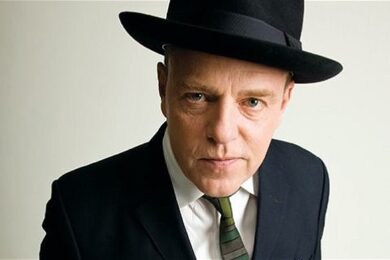Anyone with even a passing knowledge of the 2 Tone movement in general, and the career of Madness in particular, won’t exactly be knocked off their feet by the news that the veteran ska septet’s frontman Graham ‘Suggs’ MacPherson was a fan of Jamaican reggae and London punk during his formative years.
After all, a combination of those two genres was the entire basis of his band’s early style, as well as that of Madness’ fellow travellers like The Specials, The Beat, The Selecter and Bad Manners. Let’s face it, it would be more of a shock if his Baker’s Dozen didn’t include a bit of The Clash and Jimmy Cliff.
If you’re a hardcore fan, you probably already knew that the seven members of Madness used to obsessively collect old soul and R&B records, and performed classic soul cover versions when they were still called The Invaders, so the inclusion of a bit of Otis and Aretha in Suggs’ thirteen favourite albums won’t be a surprise either.
But who would ever have guessed that the suedeheaded singer was a pre-teen glam rocker, having his mind blown by Roxy Music and Cockney Rebel, trying to dress like the former and ostentatiously carrying the latter’s albums around the school playground? There are eyebrow-raising selections, too, from the post-Madness years, from 90s indie-dance to contemporary pop-soul.
To coincide with the legendary band’s career-spanning box set A Guided Tour Of Madness, and ahead of their House Of Fun weekender at Minehead Butlins on 25th-28th November, the Nutty Boy in chief tells The Quietus about the sounds that shaped them in the first place. Hit the image below to see the full list.



